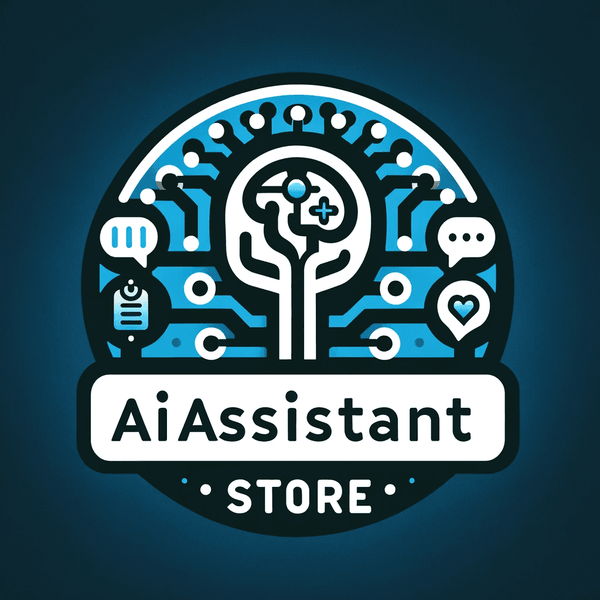Everyone in finance keeps circling back to the same noisy question: Is AI about to push financial advisors out of the picture? Some swear it’s inevitable - algorithms taking over everything, from stock picks to retirement plans. Others shrug and say, “Not a chance, people still need people.” Reality? It’s somewhere in between. AI isn’t erasing the role - it’s reshaping it. Let’s cut through the marketing fog.
Articles you may like to read after this one:
🔗 Best AI for finance questions
Top AI tools providing smarter financial insights.
🔗 What is symbolic AI
Explaining symbolic AI and how it powers intelligent systems.
🔗 What is an AI trainer
Role of AI trainers in shaping machine learning models.
Where AI Actually Delivers 📊
Machines do what humans can’t (or won’t) do at scale - chew through oceans of data, scan patterns you’d miss with a magnifying glass, and repeat tasks without yawning. The strong suits include:
-
Speed: Continuous monitoring, instant rebalancing.
-
Efficiency: Serving small accounts cheaply, where traditional models struggle [3].
-
Consistency: No “I forgot” or “bad day” moments - rules stay rules.
Quick refresher: “Robo-advisors” aren’t sci-fi - they’re regulated platforms running portfolios via algorithms. They fall under adviser rules, fiduciary obligations, and disclosure requirements [2].
Still, number-crunching ≠ bedside manner.
Quick Match-Up: AI vs Humans
| Option | Who It Suits | Cost | Why It Works (or Trips Up) |
|---|---|---|---|
| Robo-Advisors | Beginners, cost-sensitive | Low 💵 | Simple automation; lacks nuance |
| Hybrid Platforms | Middle-class investors | Mid-range | AI support + human clarity = balanced |
| Full-Service Advisor | High-net-worth households | Pricey $$$ | Complex strategy, hand-holding, family insight |
| DIY with AI Tools | Self-directed, techy types | Varies | Total control - works only if discipline holds |
Not tidy - but then again, money rarely is.
Why Humans Still Win ❤️
Finance is feelings, not just formulas. Advisors do things robots can’t fake:
-
Calm you when panic sets in.
-
Guide messy life events - inheritances, divorces, retirement trade-offs.
-
Navigate family squabbles (good luck coding sibling rivalry).
Research shows structured advice creates measurable lift - behavioral nudges, tax strategy, disciplined rebalancing. Vanguard pegs the effect at up to ~3% in net returns over time, depending on context [1].
Mini story: In March, one couple panicked after a 20% dip. Their advisor reminded them of their risk plan, rebalanced, harvested losses, and hit pause on new spending. Within months, the portfolio recovered - and the tax savings cushioned the blow. That’s coaching plus strategy, not just clicking “trade.”
Where AI Truly Shines 🌐
If repetition and scale are the game, AI dominates:
-
Tax-loss harvesting in taxable accounts.
-
Automatic rebalancing inside drift bands.
-
Fraud flags and risk anomaly checks.
Big names already run these processes 24/7 - automated TLH is practically a default feature now [4].
Why “Full Replacement” Is a Myth ❌
The whole “AI will replace advisors” headline? Great clickbait, poor reality check. Think calculators and accountants: tools made accountants sharper, not obsolete. Same arc here. Advisors lean into empathy, judgment, and planning, while machines cover the grunt work [1][3].
The Hybrid Future 🌓
Most believable outcome? A tag-team. Imagine:
-
AI crunches numbers, spots rebalancing needs, runs simulations.
-
The advisor translates trade-offs, ties them to goals, and keeps you from flinching.
-
Clients feel both secure and efficient.
Surveys show investors want empathy and digital speed. Hybrid platforms deliver exactly that [3].
Where AI Still Trips 🤔
Even with hype, today’s AI fumbles in:
-
Estate planning tangled with family politics.
-
Ethical dilemmas - choosing between competing priorities.
-
Trust building - you can’t automate a genuine relationship.
Oh, and bias. Models can hard-wire old inequities unless firms check them. Regulators hammer this point: watch for bias across data, models, and governance [5].
So… Will AI Replace Advisors? ✅
Short version: No - but advisors who ignore it may fade. AI scoops up repetitive execution. Humans stick to emotional coaching, strategic decisions, and ethical judgment. Advisors who blend both will outpace those who don’t [1][3].
Quick Buyer’s Map 🛠️
-
Starting small? A robo-advisor is cheap training wheels - later, move up to hybrid [2][3].
-
Want planning plus efficiency? Hybrid setups balance automation with real humans [3][4].
-
Managing serious wealth? A full-service advisor who uses AI is usually worth the premium [1].
Pro tip: Always check fees, what’s automated, and what’s human. Regulators demand clarity - don’t settle for jargon [2].
Bottom Line 📝
-
AI isn’t replacing financial advisors - it’s reshaping them.
-
The winning formula is automation + human empathy [3][4].
-
Trust and understanding remain firmly human territory [1][3].
So maybe the real question isn’t “Will AI take over?” but “Is my advisor smart enough to use the best tools and still speak my language?”
Notes & Sources
This piece blends regulatory insights, industry studies, and platform docs. Citations in brackets point to references below. None of it is personalized financial advice.
References
[1] Vanguard — Celebrating Vanguard Advisor’s Alpha: Clients and their advisors thriving together for 25 years (2025). Link
[2] U.S. Securities and Exchange Commission — IM Guidance Update 2017-02: Robo-Advisers. Link
[3] Morningstar — The Value of Advice: What Investors Think, What Advisors Deliver. Link
[4] Charles Schwab — Schwab Intelligent Portfolios: FAQs. Link
[5] UK Financial Conduct Authority — Research Note: A Literature Review on Bias in Supervised Machine Learning (2024). Link

